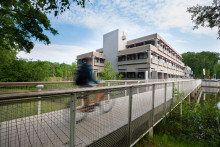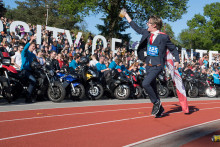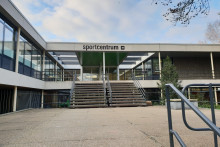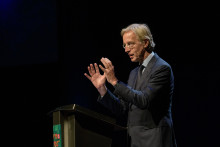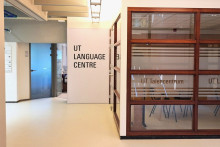Although the name remains ‘Psychology’, the programme has gradually transformed its educational content to teach ‘technical psychology’. What does this mean and what is the reason for this change?
Stel: ‘The programme was already focused on technology, as we are at a technical university after all. But due to our changing society and the enormous use of technology in our daily lives, we think it’s very important to know how this technology influences human behavior. We decided to teach more about how technology affects us. It has changed everything. People look at their phones the whole day. Even simple things such as dating are different now. We used to send letters, now we swipe left or right. And the use of technology leads to new behavior, such as cyberbullying and cybercrime. The world has changed, and so we need to change how we teach psychology.’
How is the programme different now?
‘We focus a lot more on theory of technology. We teach students how to use technology in their methodology, how they can use it to investigate human behavior, for example by using eye tracking, virtual reality and so on. And we focus on how technology can be used for interventions and helping people. For instance, if it comes to treatment of depression or burnout, people usually think of the traditional face-to-face therapy. However, there are often long waiting lists for an appointment with a psychologist and the meetings only take place once a week or less. If you add technology, such as mobile apps, you can help the patients much better and every day. Lastly, we focus on how to make technology better, how to redesign it so it is user friendly and helpful.’
Do you think this change will attract a different type of students?
‘Indeed. We are not aiming to attract more students, but we want students that best fit the programme. We haven’t seen any major shifts yet, although we do see a bigger interest in the technical focus. The majority of our students still want to become therapists, but we see that especially our Master students are interested in the unique profile of the programme. We’d like this to also apply to the Bachelor programme and hopefully attract more students from Randstad and other areas. We have also noticed a small change in the gender profile of our student population. It used to be 80% female students, 20% male students. Now it is 70% female, 30% male.’
Is the transformation of the programme complete?
‘Almost. It was a gradual process. We took it step by step over the years. Now we are taking the final steps. Those apply especially to the first study year, when we’d like to teach even more theory on technology, not just traditional psychology. That should teach the students how people are affected by things in our current society. However, the challenge is a shortage of staff. The workload is very high for us right now and without additional teachers we can’t take this final step.’


